 November 2, 2023 John E. Ross, KD8IDJ, Editor
| ||||||
Deadline Extended Until November 28 for 60-Meter-Band Comments The Federal Communications Commission (FCC) has extended the deadline to file comments on the 60-meter band proposal to November 28, 2023. ARRL strongly encourages all amateurs to submit comments expressing support to the FCC for the current 100 W ERP power limit (instead of reducing the power limit to 15 W EIRP) and continuing secondary access to the current channels. ARRL has assembled a web page with instructions on how to submit your comments, as well as background information on the issue: www.arrl.org/60-meter-band. Amateur Radio Operators Provide Post-Hurricane Communications in Mexico Radio Amateurs are providing communication services to and from the affected areas in and around Acapulco, Mexico. On the morning of Wednesday, October 25, 165 mile-per-hour winds from Hurricane Otis knocked out all communications and unleashed a nightmare scenario in Acapulco.
The area is home to roughly 800,000 people. Radio Club Queretaro member Ruben Navarrete Galvan, XE1EC, told ARRL News that amateur radio operators are still active with multiple operations, and they are receiving citizen requests to obtain information on the whereabouts of their relatives. "We keep an online database with these requests that we share with the different hams participating in the operation. Read-only access to this database is provided to the authorities who might need it, too. We also transmit this information to hams deployed in the Acapulco area via HF," Galvan said. Additionally, hams in the Acapulco area are trying to locate civilians using their own resources. Some of these hams are operating their equipment on battery power, while others have access to generators. Accessing many areas in the region has been a challenge due to the amount of debris blocking travel Amateur radio operators have also been receiving requests from Acapulco residents to call their relatives and let them know they are fine. Those requests are transmitted via HF to the Emergency Net Operator, and then the call is made to the family members. Galvan also reported that hams have been providing communication between state agencies and their field personnel deployed in the Acapulco area. "At least three state agencies have hams on their teams. This is the case for the state of Durango, Morelos, and Santiago de Querétaro. We have been communicating their messages to their central coordination via HF relays. Requests for specific requirements have been escalated to the support teams. Air medical services have been directed to areas that were not being attended," he said. Hams are also helping in other areas, including:
Emergency Communications Coordinator International Amateur Radio Union Region 2 Emergency Communications Coordinator Carlos Alberto SantamarÃa González, CO2JC, said frequency protection has been requested for the following bands and frequencies
Veterans Day 2023 Special Events Special event stations will offer many opportunities for amateur radio operators to honor Veterans and make contacts for Veterans Day.
The American Legion Post 111 Amateur Radio Club, KA4TAL, in South Carolina will also operate on November 11 from 10 AM to 3 PM ET on 14.255, 7.264, 14.275, and 7.185 MHz. Email [email protected] for electronic contact certificates. On the same day, the Liberty ship S.S. John W. Brown, K8JWB, will hold National Liberty Ship Day. The event honors those who served in the military and operated, protected, and built all 2,710 World War II Liberty ships, including the Merchant Marines, the Navy Armed Guard, and the female shipyard workers recruited during the war. Operations will be on 14.250, 7.225, and 21.300 MHz, from 0200Z - 0800Z. QSL cards will be available by mail from Project Liberty Ship PO Box 25846 in Baltimore, Maryland. In Ohio, the Central Ohio Radio Club will hold their third annual Veterans Day Check-in Net on November 11, beginning at 11 AM ET. They will use their main VHF repeater, W8AIC, on 146.76 MHz (PL tone 123.0 MHz). All amateurs can check in and share stories about their own military experience, or information about family and friends who have served. A special QSL card will be mailed to each ham who contacts the station. The Charles County Amateur Radio Club in Maryland will host their special event, The Ghost Fleet at Mallows Bay, on November 11 from 1400Z - 2100Z. Mallows Bay is the site of more than 100 shipwrecks and is now the Mallows Bay-Potomac River National Marine Sanctuary, the first national marine sanctuary in the state of Maryland. K3SMD will operate on 40 (7.270 Mhz), 20, and 15 meters on phone and FT8. QSL cards will be mailed to those who contact the station by Michelle Sack, N3YRZ, at PO Box 1182 in Waldorf, Maryland. Also on November 11, the United States Marine Corps will celebrate its 248th anniversary (it was officially formed on 11/10/1775) and Veterans Day. The USS Midway CV-41 COMEDTRA amateur radio station, NI6IW, will be on the air from 1700Z - 2359Z on 14.320, 7.250, and 14.070 MHz. The station will use PSK31, D-STAR, the PAPA System repeaters, and a wide-area amateur radio network of 57 additional repeaters on 19 hilltops. These will provide extensive coverage of the Southern California region and beyond. A QSL card will be available for every operator who contacts NI6IW. A complete list of special event stations, including Veterans Day stations, is available at www.arrl.org/special-event-stations. Type "Veterans" in the keyword search bar to find the stations. Great California ShakeOut Drill Reported a Success Editor's Note: Tuolumne County Amateur Radio and Electronics Society (TCARES) members Rich Combs, KN6HSR; Ned Sudduth, K6NED, and Toni Sudduth, K6TNI reported that the October 2023 Great California ShakeOut exercise was an "outstanding" success. Here is their story as reported to ARRL News: "This is a drill. Drop! Cover! Hold on!" was the mantra for the Great ShakeOut exercise on October 19, 2023, at 10:19 AM in Tuolumne County, California.
There was an amateur radio operator stationed at the Tuolumne County Emergency Operations Center, which was operated by the Office of Emergency Services. After a preparatory simulated 5.0-magnitude San Francisco earthquake preamble at 10:19 AM, Ned Sudduth, K6NED, began taking check-ins from amateurs throughout the county with his wife Toni, K6TNI, who logged the reports. County Geographic Information System (GIS) staff loaded the real time of those hams on a map that was displayed on a TV. Tuolumne County is fortunate to have a backbone of four linked, 2-meter repeaters that cover almost the entire county. There were 38 amateur radio operators providing reports on conditions throughout the county. In addition, we had four Neighborhood Radio Watch (NRW) communities using Family Radio Service radios, General Mobile Radio Service (GMRS) radios, and a few GMRS repeaters to add an additional 28 reports. Each NRW community has an embedded ham who monitors the NRW traffic, and then provides a summary to the Incident Commander during their check-in. Considering it was a Thursday morning, we felt this was a great response. Participation increased from last year's check-ins. Although Tuolumne is a large county by area, it has a population of just more than 55,000, and it is primarily rural and mountainous in character. Nonetheless, the combination of NRW communities with embedded ham radio operators and a robust repeater system has shown that even when the power and internet are down, first responder operations can continue to operate, and communities can immediately communicate and mobilize to help themselves. During the net, net control began by asking for regional check-ins based on repeater location, starting with the most remote corners of the county. Roll call was not conducted, but check-ins in small batches of three or four allowed for concise reporting with "yes" or "no" comments on the availability of grid power and telephone services. Most stations checking in had clear audio and delivered their local status professionally. Some stations learned they needed to make improvements. Stations at sites of interest, like schools or government buildings, were asked to state their affiliation with organizations like the Community Emergency Response Team, Search and Rescue, Crime Scene Unit, etc. Mobile units also checked in and made reports. Those in nearby counties checked in, too, and they reported their local situation reports. Ideas for next year are already underway with plans to assign operators to specific locations like the local fairgrounds, hospital, Red Cross, fire stations, etc. The Automatic Packet Reporting System can also provide value next year with real-time location and status updates from mobile operators. Thanks to TCARES, the Tuolumne County Sheriff, the Office of Emergency Services, and GIS staff, and the radio operators who have made this an outstanding exercise for the last 2 years. Thanks to TCARES for the information contained in this report. Amateur Radio in the News ARRL Public Information Officers, Coordinators, and many other member-volunteers help keep amateur radio and ARRL in the news. "Shooting for the stars: Marietta students speak with astronaut aboard International Space Station" / Atlanta News First/ANF (Georgia) October 24, 2023 -- A.L. Burruss Elementary School in Marietta, Georgia. "Detroit Lakes Amateur Radio Club installs commemorative plaque to Mark Knutson" / KFGO (North Dakota) October 28, 2023 -- The Detroit Lakes Amateur Radio Club is an ARRL Affiliated Club. "Community members recognized for helping create Clipper Amateur Radio station at Columbiana High School" / Salem News (Ohio) November 1, 2023 -- Columbiana High School K8LPS Clipper Radio Club project. ARRL Podcasts On the Air The Solar Eclipse QSO Party: When Operating is Science Gary Mikitin's, AF8A, article, "The Solar Eclipse QSO Party: A Fun Way Support Radio Science" in the September/October 2023 issue of On the Air details how hams can contribute data to a study on how the ionosphere reflects radio signals during the eclipse via an easygoing on-air event called the Solar Eclipse QSO Party. Gary, who is the Amateur Radio Community Coordinator of HamSCI, joins us on the October episode of the On the Air podcast, to talk about just how easy it is to participate. ARRL Audio News The On the Air podcast is available on iTunes. The On the Air podcast and ARRL Audio News are also on blubrry -- On the Air | ARRL Audio News. Announcements The National Oceanic and Atmospheric Administration (NOAA) and the National Weather Service (NWS) are finalizing plans for 2023 SKYWARN⢠Recognition Day. The event is held annually on the first Friday and Saturday of December, so this year it will be on Friday, December 1, and Saturday, December 2. SKYWARN Recognition Day was developed in 1999 by the NWS and ARRL. It celebrates the contributions that volunteer SKYWARN amateur radio operators make to the NWS. During the event, SKYWARN operators visit NWS offices and contact other radio operators across the world. More details about the event will be posted on the SKYWARN⢠Recognition Day and ARRL websites. The K1USN Radio Club has announced that due to a direct scheduling conflict with the upcoming 2023 CW ARRL Sweepstakes, they will cancel their regular November 6 0000 UTC SST session. We wish to take this opportunity to thank all of our regular SST participants and to encourage everyone to use that time to participate in the CW ARRL Sweepstakes, November 4 - 6, 2023. Complete Sweepstakes rules can be found here - http://www.arrl.org/sweepstakes. Please note that the ONLY K1USN SST session to be cancelled will be the November 6 0000 UTC K1USN SST session. All other sessions will take place as scheduled: Fridays 20:00-21:00 UTC; Mondays 00:00-01:00 UTC In Brief... The International Telecommunication Union (ITU) will hold its 2023 World Radiocommunication Conference (WRC-23) on November 20 - December 15 in Dubai, United Arab Emirates. The ITU is the United Nations' specialized agency for information and communication technologies. Based in Geneva, Switzerland, the ITU includes 193 member states and several hundred Sector members and associates. WRC conferences are held every three to four years to review and revise, if necessary, the ITU Radio Regulations, which is the international treaty governing use of the radio frequency spectrum and geostationary satellite and non-geostationary satellite orbits. To learn more about the agenda for WRC-23, visit WRC-23 Agenda items - WRC-23 (itu.int). The ARRL Foundation is accepting applications for scholarships through January 10, 2024. The ARRL Foundation Scholarship Program supports eligible amateur radio operators pursuing higher education. ARRL Director of Development Kevin Beal, K8EAL, said the scholarships pave the way for amateur radio being a hands-on pathway to STEM careers. "We are so thankful to donors who give to ARRL education programs because they are investing the future of amateur radio. The ARRL Foundation Scholarship Program provides financial support at a critical time for students pursuing a college degree and keeps these young radio amateurs active in the hobby." Additional information and a link to the application can be found at www.arrl.org/scholarship-program. The ARRL Foundation, celebrating its 50th year, administers programs to support the amateur radio community, and was established in 1973 by ARRL. Here is a direct link to the application: http://www.arrl.org/scholarship-application ARRL reminds readers about the ARRL DX Log Archive, founded by JA1BK. The DX Log Archive program was created, thanks to an endowment established by Kan Mizoguchi, JA1BK, to obtain, preserve, and utilize paper logs from rare and significant DXpeditions. Paper logs of prominent DXpeditions or logs from stations and operators active from more rare locations from the 1950s through the 1980s, are the main items which we desire to save from the waste bin and archive at HQ. The archive includes pre-1950 paper logs as well as those from interesting operations, other documents from DXpeditions, and logs kept by long-time residents of rare entities. Logs which are now part of the Archive are indexed online and are being digitized and uploaded into Logbook of the World (LoTW) over time. Former ARRL Radiosport and Field Services Manager Dave Patton, KW9A (ex NN1N), manages the program. Patton noted the recent receipt of interesting logs for all the Colvin's operations; Fred Laun, K3ZO/HS0ZAR; Roger Western, EP2IA/G3TXF; John Snuggerud, LA1VC/3Y1VC (Bouvet Island); and Dick Spencely, KV4AA. Contact Patton at [email protected] for more information about logs or related DXing ephemera that might be of interest to the DX Log Archive, or to ask for a LoTW of the World confirmation for QSOs made with any of the hundreds of calls whose logs are available on the DX Log Archive webpage. The K7RA Solar Update Tad Cook, K7RA, of Seattle, Washington, reports for this week's ARRL Propagation Bulletin, ARLP044:
Seven new sunspot groups emerged this reporting week. There were two on October 26, one on October 27, another on October 28, two more on October 31, and another on November 1. Average daily sunspot numbers rose from 41.9 to 76.7, while the average daily solar flux increased from 123.5 to 137.5. Predicted solar flux is 160, 162, and 162 on November 2 - 4; 160, 157, 150, 148, 136, 138, 136, and 134 on November 5 - 12; 130 on November 13 - 15; 125, 123, and 120 on November 16 - 18; 125 on November 19 - 22, and 130 on November 23 - 26. Predicted planetary A index is 8, 5, 8, 12, 8, and 5 on November 2 - 7; 12 on November 8 - 9; 8 on November 10; 5 on November 11 - 13; 8 and 10 on November 14 - 15; 5 on November 16 - 21, and 15, 10, 15, 15, and 20 on November 22 - 26. There might be an early peak of Solar Cycle 25. Read about it at https://bit.ly/3FF26jh and https://bit.ly/40ndQQN. Sunspot numbers for October 26 through November 1 were 57, 66, 70, 61, 62, 116, and 105, with a mean of 76.7. The 10.7-centimeter flux was 126.4, 127.5, 128, 135.2, 139.7, 147.3, and 158.6, with a mean of 137.5. Estimated planetary A indices were 23, 11, 19, 28, 12, 9, and 9, with a mean of 15.9. Middle latitude A index was 18, 9, 13, 21, 10, 6, and 6, with a mean of 11.9. A comprehensive K7RA Solar Update is posted Fridays on the ARRL website. For more information concerning radio propagation, visit the ARRL Technical Information Service, read "What the Numbers Mean...," and check out the Propagation Page of Carl Luetzelschwab, K9LA. A propagation bulletin archive is available. For customizable propagation charts, visit the VOACAP Online for Ham Radio website. Share your reports and observations. A weekly, full report is posted on ARRL News. Just Ahead in Radiosport Yearlong -- ARRL Volunteers On the Air (VOTA). See the State Activations Schedule for weekly W1AW Portable Operations, including:
Upcoming Contests:
Visit the ARRL Contest Calendar for more events and information. Upcoming Section, State, and Division Conventions
Search the ARRL Hamfest and Convention Database to find events in your area. Have News for ARRL? Submissions for the ARRL Letter and ARRL News can be sent to [email protected]. -- John E. Ross, KD8IDJ, ARRL News Editor
ARRL -- Your One-Stop Resource for
Subscribe to...
Free of charge to ARRL members...
| ||||||
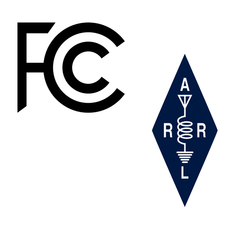 Replies to comments will be due December 28, 2023. The public comment period was originally scheduled to close October 30, 2023.
Replies to comments will be due December 28, 2023. The public comment period was originally scheduled to close October 30, 2023.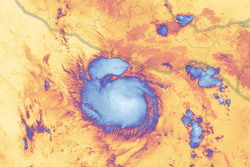
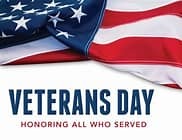 The
The 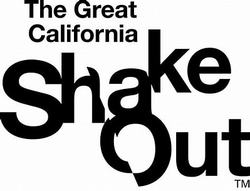 The Great ShakeOut is an annual international event that promotes awareness of how to prepare for and react to an earthquake. For the past 2 years, TCARES has used this event as an opportunity to test our ability to provide backup communication for the county public safety agencies. Considering that over the past year there have been two instances where primary communication systems went down -- one due to a fire, and the other due to a damaged T1 fiber optic cable -- this was a timely opportunity. It is a great chance to partner with first responder agencies, build trust, and develop awareness of mutual capabilities and needs.
The Great ShakeOut is an annual international event that promotes awareness of how to prepare for and react to an earthquake. For the past 2 years, TCARES has used this event as an opportunity to test our ability to provide backup communication for the county public safety agencies. Considering that over the past year there have been two instances where primary communication systems went down -- one due to a fire, and the other due to a damaged T1 fiber optic cable -- this was a timely opportunity. It is a great chance to partner with first responder agencies, build trust, and develop awareness of mutual capabilities and needs..jpg)
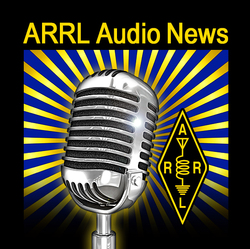 Listen to
Listen to 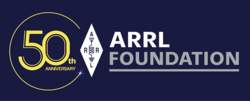 The ARRL Foundation manages more than 100 scholarships established by generous donors ranging from $500 to $25,000. Scholarships will be awarded for the academic year that will begin no earlier than June 2024 following the application deadline. The scholarships vary in eligibility requirements.
The ARRL Foundation manages more than 100 scholarships established by generous donors ranging from $500 to $25,000. Scholarships will be awarded for the academic year that will begin no earlier than June 2024 following the application deadline. The scholarships vary in eligibility requirements.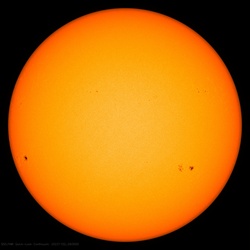
.jpg)
-Blue.jpg)








